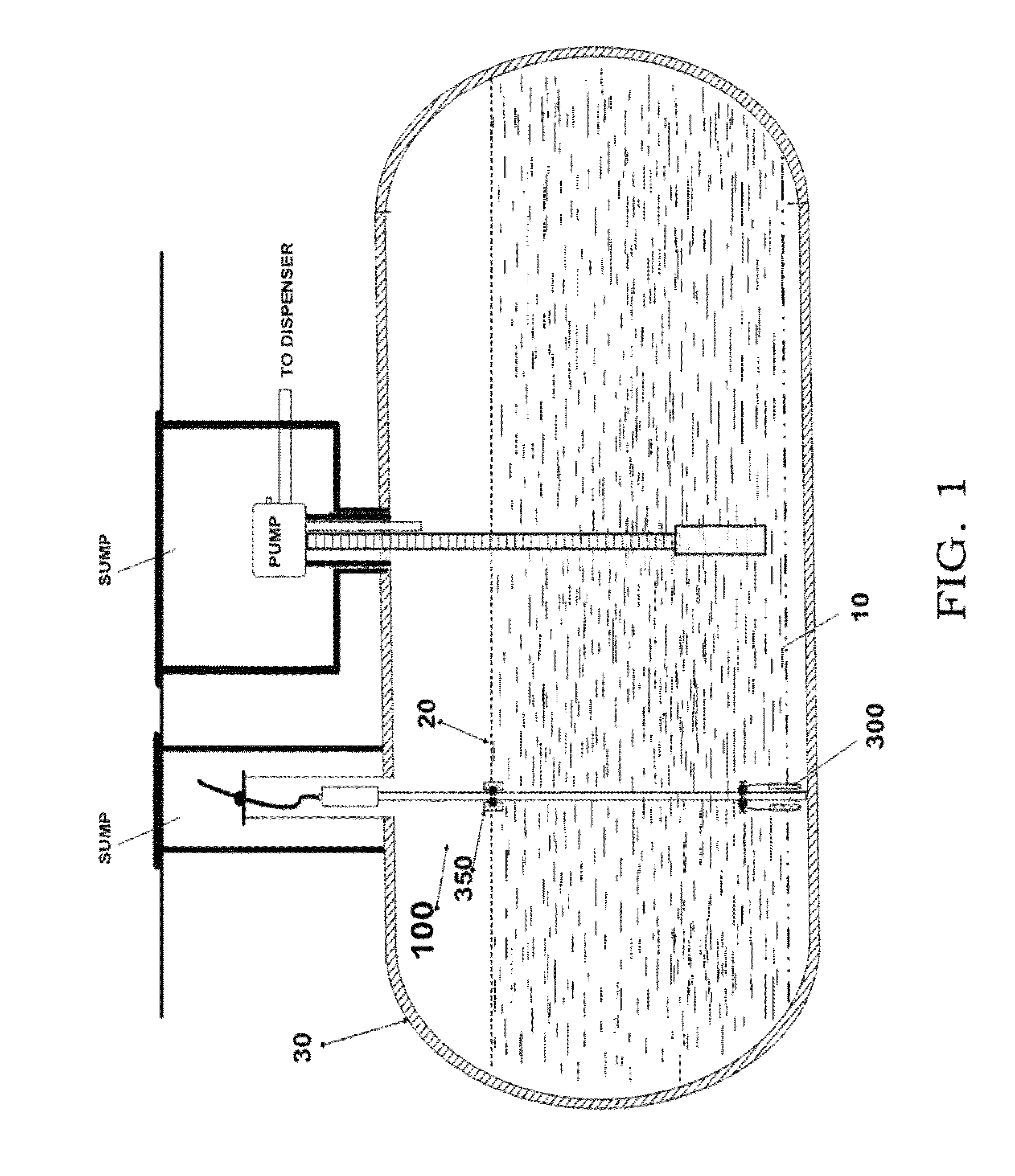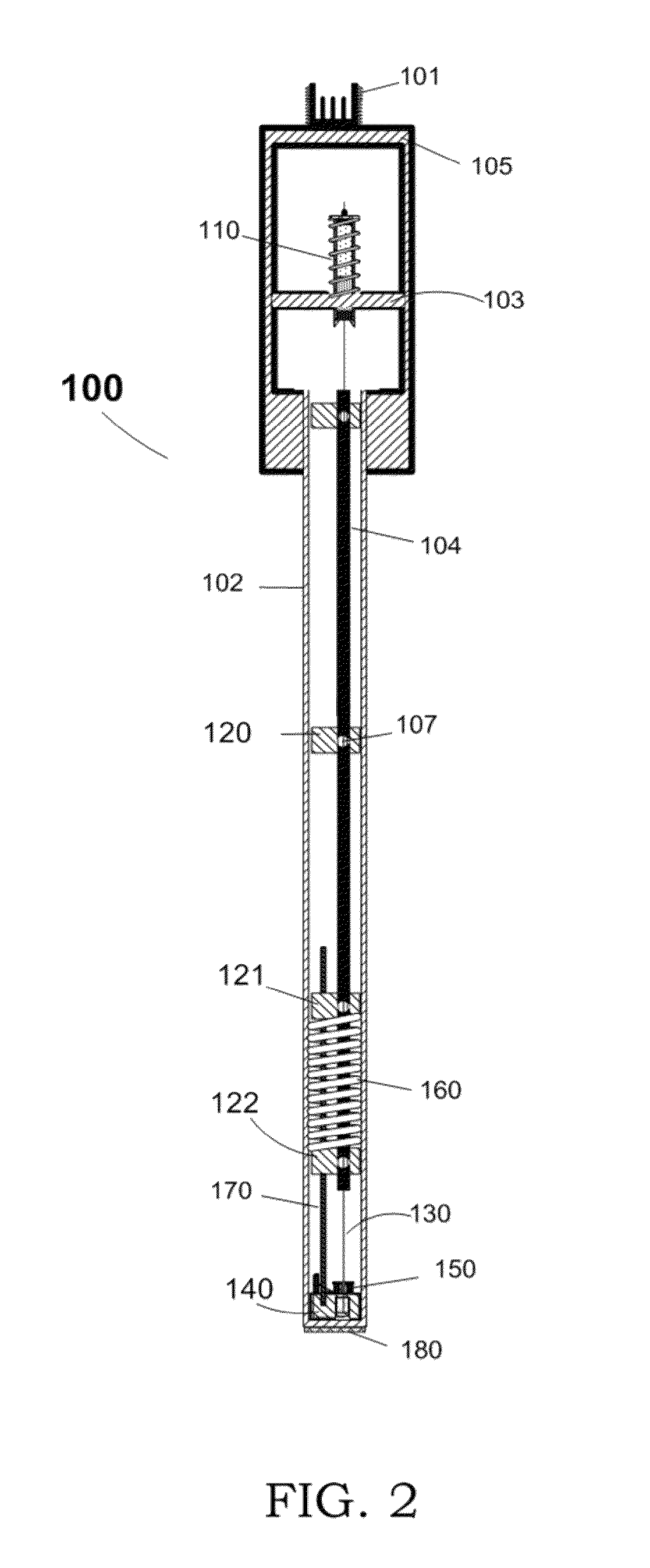Magnetostrictive probe with inverted signal detection
a magnetic restriction and inverted signal technology, applied in liquid/fluent solid measurement, instruments, machines/engines, etc., can solve the problems of multiple signals in the waveguide, more baseline noise, and the approach often introduces level determination errors, etc., to achieve more accurate measurement
- Summary
- Abstract
- Description
- Claims
- Application Information
AI Technical Summary
Benefits of technology
Problems solved by technology
Method used
Image
Examples
Embodiment Construction
[0035]For over half a century since magnetostrictive technology has been in use for linear positioning devices, there has been many configurations intended to improve on its performance. From the early units that were used for data conversion from analog to digital as U.S. Pat. No. 2,995,736, referenced here in its entirety demonstrates, the technology has progressively been adapted to be used for many other applications involving linear positioning. For over half that time, magnetostrictive probes were adapted to be used for fuel level determination.
[0036]Due to constraints in tank entry ports, and the volatile nature of gasoline, restraints were maintained in introducing electrical equipment inside fuel tanks. With time, more knowledge was acquired. During that same time, electrical components were shrinking in size as well as power requirements. With this, it became possible to use miniaturized electrical elements in a probe.
[0037]The proposed adaptation of a magnetostrictive pro...
PUM
 Login to View More
Login to View More Abstract
Description
Claims
Application Information
 Login to View More
Login to View More - R&D
- Intellectual Property
- Life Sciences
- Materials
- Tech Scout
- Unparalleled Data Quality
- Higher Quality Content
- 60% Fewer Hallucinations
Browse by: Latest US Patents, China's latest patents, Technical Efficacy Thesaurus, Application Domain, Technology Topic, Popular Technical Reports.
© 2025 PatSnap. All rights reserved.Legal|Privacy policy|Modern Slavery Act Transparency Statement|Sitemap|About US| Contact US: help@patsnap.com



